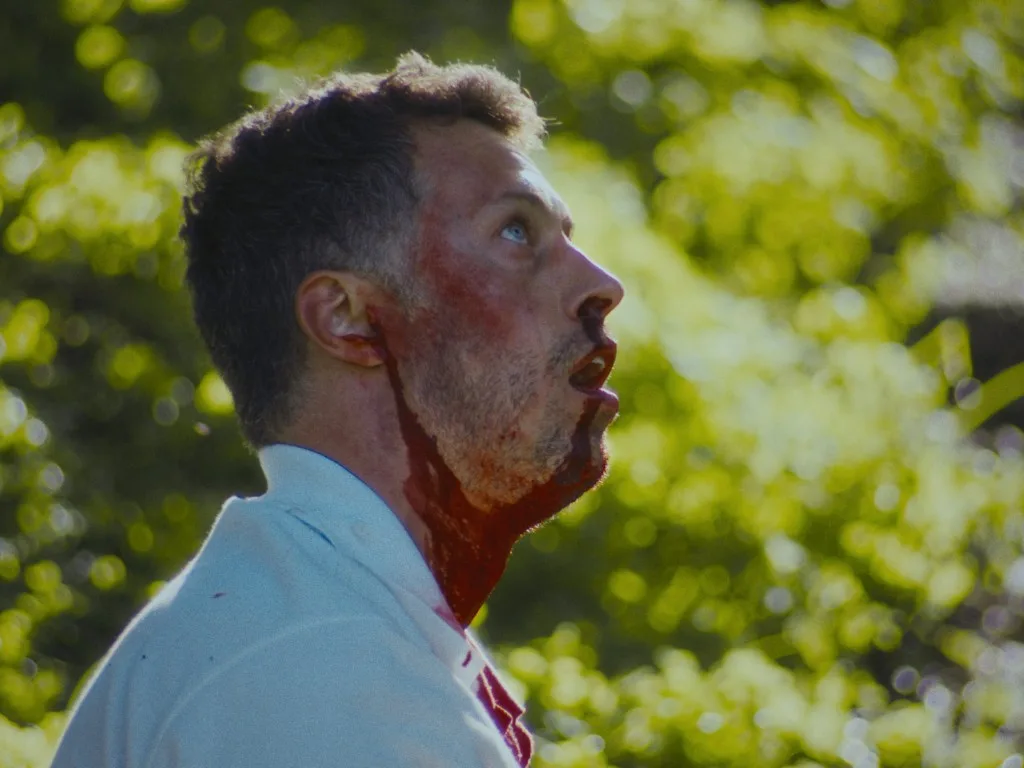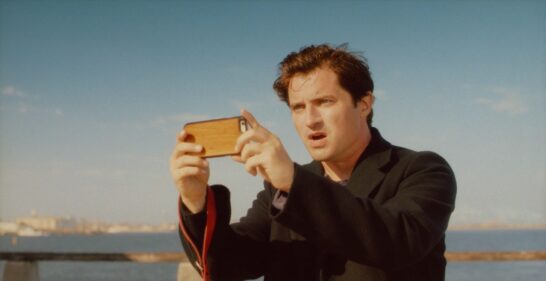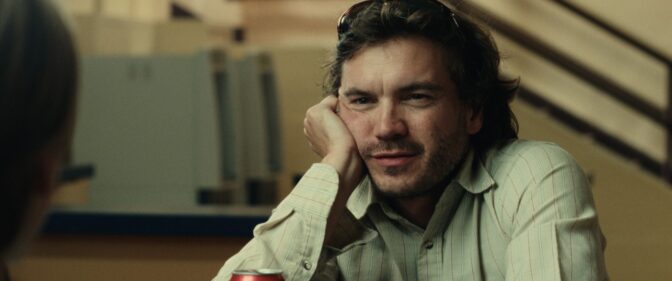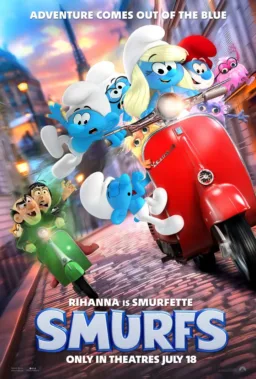I’m not sure I’m fully qualified to write this review, even though I have seen Scott Tinkham’s “24 Hours After Reading Tuesdays With Morrie” more than a few times. I almost–almost–programmed it for the Chicago Critics Film Festival this year, but blinked, second-guessed, and perhaps chickened out. “Are people gonna get this? Do I get it? Is ‘Tuesdays With Morrie’ a reference point that will register with the younger audiences who come to our fest?” These were the questions that kept nagging at me. It’s almost the opposite experience from the main character in the film.
In it, a man finishes the last few pages of Mitch Albom’s much-celebrated book “Tuesdays With Morrie.” He turns the last page and suddenly experiences an absurd level of spiritual awakening, turning him into a wandering, wide-eyed dolt whose inner dialogue sounds like a bad imitation of a Terrence Malick film.
He wanders into traffic while staring up at palm trees and admiring their beauty, while people going about their day look on, bemused and probably filming him for TikTok videos. His girlfriend leaves him, but he remains committed to noticing and feeling connected to the oneness of the universe. That is, until someone violently tries to smack some sense into him.
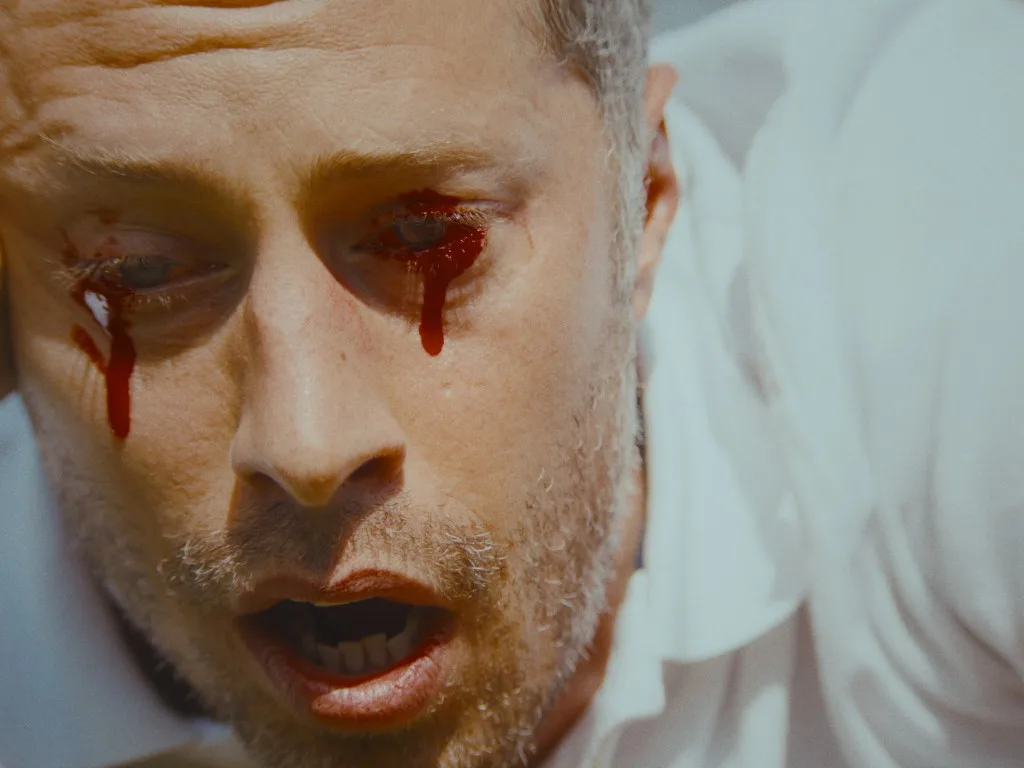
The less you know after this point, the better. Tinkham’s film might be a one-joke odyssey, but it’s a joke I don’t often see played out. Whether we want to admit it to ourselves or not, there are many among us who have connected to a piece of art the way this character does, and we walk away believing we’re forever changed. But are we? Sure, I remember first reading Carl Sagan’s “Contact” and feeling like another window to the universe opened up, but not literally. Eventually, I had to step back into the real world and put aside how I feel about the vastness of the cosmos and how small we are. This character refuses to snap out of it, and Tinkham mines that idea for much of the film’s humor.
I have never read “Tuesdays With Morrie,” so maybe that’s why I feel underqualified to write about this, but I still find the film very funny and eager to see what Tinkham does next. Many have commented that this is a funny exaggeration of how people react to the book. I’ll have to take their word for it. Sometimes, to engage with art, you have to admit you don’t fully get it, but can still find a way to appreciate it simply by stepping outside yourself. It might not be as satisfying as being in on the obscure reference, but if I had skipped this movie because of its title, I’d be missing out on a weird little number that I ended up enjoying.
Q&A with writer-director Scott Tinkham
How did this come about?
It came to fruition in a million different ways. But there was some weird unlock that happened when I read “Tuesdays with Morrie.” After finishing it, I came out feeling an odd sense of clarity about life. Not just a feeling of vividness and presence, but a flood of bizarre epiphanies. They started sprouting in my head as poetic one-liners while I waltzed around the city like some guy on drugs. I remember being on the stairmaster at Planet Fitness, looking around at this packed gym, and in a totally nonchalant daze, thinking: “Look at all these creatures taking care of their meat vehicles just to sustain a healthy life.” Borderline psychotic. I was rattling off these “life truths” by the dozen. Moral of the story: I wrote this film as an exploration of that strange day, heightened to the absolute extreme.
How did you find Mat Wright?
Around five years ago, I was sent this short film, “Craig’s Pathetic Freakout,” by Graham Parkes, starring Mat Wright and Lewis Pullman. It quickly became one of my favorite shorts ever. After writing this film, I reached out to Mat, and miraculously, he connected with it and wanted to meet. The rest is history.
Did Mat Wright have to read “Tuesdays with Morrie” to help get into character?
I’m pretty sure the first time he cracked the book was when he was reading it in the first shot of this film. He read it all the way through a couple of months after we wrapped, and immediately started to bleed from his eyes and nose.
I’ve never read the book, yet I still get where the movie is coming from and why it’s funny. Has this been a common reaction?
Yes, absolutely. It also lands for people who have never even heard of the book. It’s strange, but I think it’s ultimately because people can immediately relate to being moved by a piece of art, anything with perspective-altering power. It could be a movie, a painting, a song, a conversation with a friend, anything. It just so happened that this was the book about a man tending to his dying professor every Tuesday.
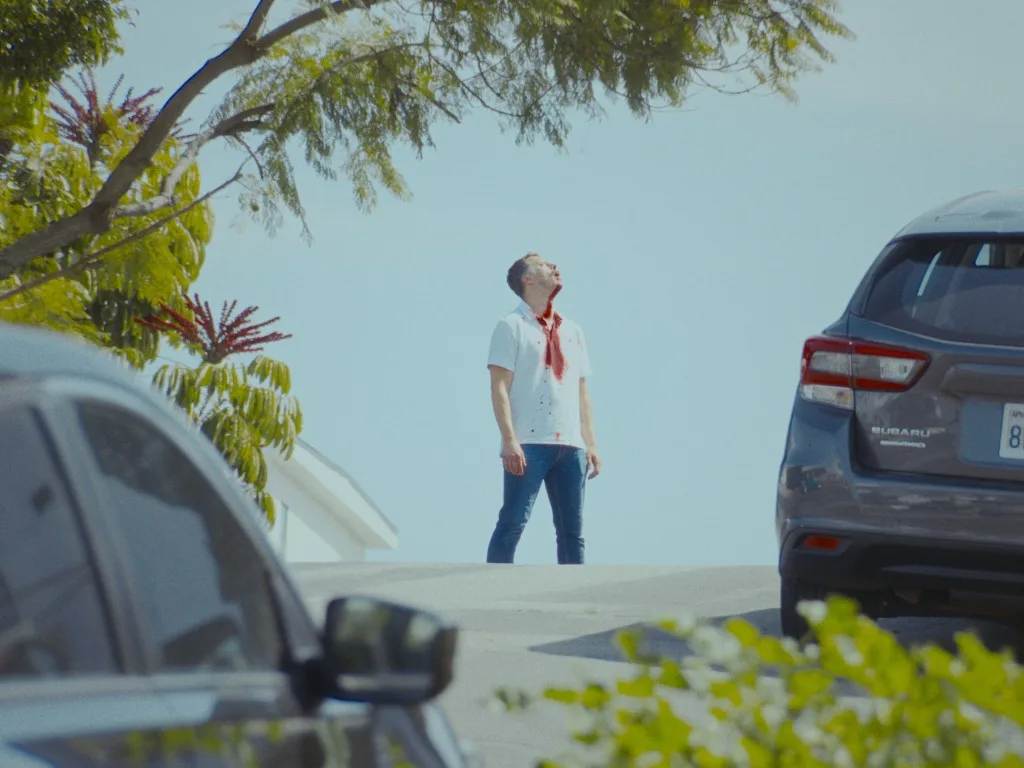
Besides this one, has there been a book, painting, movie, or piece of music that has affected you in this way?
So many things from every different medium. Even simple experiences or conversations with close friends or family. When something really affects you, all you want to do is scream it to the world and share it with everyone, because it feels like a profound epiphany. But the sad truth is you have to fight against yourself to retain that newfound perspective. That’s the core of this film. Wanting to live within a newly discovered, fresh headspace, thinking you’re forever changed, but having to fight against the part of yourself that wants to retreat back to its natural stasis. It’s something I struggle with every day, and it makes me question if true change is really possible.
What’s next for you?
I’m making a feature film called “Good Life.” I’m really excited for people to see it. It’s similar in tone and feel to this short, and in a lot of ways, it’s a spiritual successor. It has the same existential weight, but it’s matched by humor, heart, and primal themes of death and love. I’m hoping it will make people both laugh and squirm.

